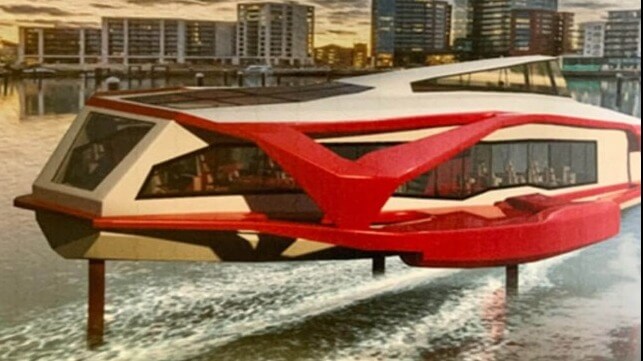UK Researchers Developing High-Speed Zero-Emission Passenger Ferry

A research project is getting underway in the UK to develop a new generation of high-speed zero-emission passenger ferries. According to the engineers, initial testing has demonstrated the potential for a foiling trimaran with low drag and power requirements that could provide a new cost-effective zero-emission solution for passenger ferries.
“Recent advancements in electrical propulsion technology mean zero-emission, low-drag, high-speed medium-capacity passenger vessels are now viable,” said Dr. Laurie Wright, leader of the project and Associate Professor of Marine Sustainability at Solent University. "These types of passenger vessels can open 'blue corridors', encouraging a shift from road to alternative transport on otherwise underutilized coastal waterways.”
The UK Government is funding the development of new clean maritime technology across a two-year period. The £1.86 million ($2.3 million) project to develop the high-speed ferries is being funded by Innovate UK, under the Cleaner Maritime Demonstration Competition. The project seeks to develop and build a scaled demonstrator vessel, proving that the concept is viable and can operate in a range of weather and sea conditions. The effort is being undertaken by an industry-led collaboration between Solent University, Chartwell Marine, and Newcastle Marine Services.
The concept was initially developed by Solent University, which reports promising results in its initial research. The goal of the new effort is to build on the original concept to develop an electric hydro-foiling high-speed trimaran. The group is aiming to have a vessel capable of carrying up to 40 passengers on short- to medium-range coastal routes.
“A traditional, diesel-powered, 40-passenger catamaran ferry operating at 25 knots typically requires well over 1000kw of power. The trimaran foiling ferry concept has the potential to reach 28 knots using just 250kW of power - equivalent to the power used by two modern electric family cars (2×125Kw motors),” explains Giles Barkley, leader of Solent University’s yacht engineering-based degrees. “This means it is possible to power the craft using zero-emission electric motors, with a significant reduction in associated fuel and operational costs compared to a traditional diesel craft.”
According to the project organizers, following the successful deployment of the demonstration vessel, a full-size vessel could be built for commercial operation offering cost-effective, zero-emission solutions for high-speed passenger ferry operators both in the UK and abroad.
No comments:
Post a Comment